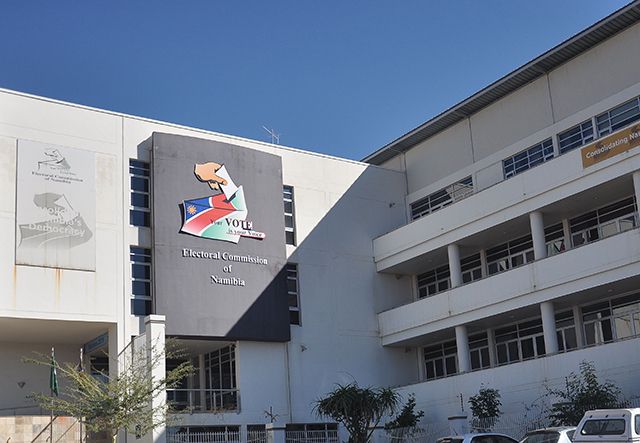IN an effort to help the Topnaar people to farm and to use natural resources in a sustainable manner, the Gobabeb Research and Training Centre has trained two local young people in various methods of livestock and crop farming.
Memory Dausas and Albertus Kootjie, both Topnaars, have learned about the local ecology and general ecological principles, which includes sorting and identification of insects, plants and animals. They are now called para-ecologists.The training also gave them general skills such as facilitating workshops, conducting interviews and assessing and documenting environmental data.Kooitjie, one of Gobabeb’s junior researchers who gave presentations on their work in Windhoek last Thursday, said they were facing a number of teething problems.These include community members asking money for the information sought, not arriving on time for interviews or even refusing to provide information.Kooitjie said their work also involves giving information to farmers on how to protect their crops, which plants are poisonous and which ones are of medicinal value.”The farmers then discuss the medicinal use of plants and give feedback,” said Kooitjie.Community visits are done once a month, he said.Kooitjie’s work is part of Gobabeb’s long-term observations in collaboration with the Biodiversity Monitoring Transect Analysis in Africa (Biota).Biota Southern Africa conducts biodiversity research from the winter-rainfall region in South Africa’s Western Cape to the summer rainfall regions of northern Namibia.The aim of the research is to provide adequate data and to develop scientifically sound concepts for the conservation and sustainable utilisation of biodiversity in southern Africa.In June 2005, Gobabeb was declared a SADC Centre of Excellence in support of the UN Convention on climate change, the UN Convention on Combating Desertification and the UN Convention on Biodiversity.The overall goal of research at Gobabeb is to improve the understanding of arid land ecosystems with a view to supporting specialists and decision makers in southern Africa and the world.Gobabeb gives training courses ranging from arid zone zoology to globalisation and climate change, desertification, community-based resource management and conservation methods.The Namib Desert, in which the centre is located, is home to many endemic species.Veronica Siteketa, a research technician at Gobabeb, said the centre hosts more than 100 scientists and trains more than 1 500 students annually.They are now called para-ecologists.The training also gave them general skills such as facilitating workshops, conducting interviews and assessing and documenting environmental data.Kooitjie, one of Gobabeb’s junior researchers who gave presentations on their work in Windhoek last Thursday, said they were facing a number of teething problems.These include community members asking money for the information sought, not arriving on time for interviews or even refusing to provide information.Kooitjie said their work also involves giving information to farmers on how to protect their crops, which plants are poisonous and which ones are of medicinal value.”The farmers then discuss the medicinal use of plants and give feedback,” said Kooitjie.Community visits are done once a month, he said.Kooitjie’s work is part of Gobabeb’s long-term observations in collaboration with the Biodiversity Monitoring Transect Analysis in Africa (Biota).Biota Southern Africa conducts biodiversity research from the winter-rainfall region in South Africa’s Western Cape to the summer rainfall regions of northern Namibia.The aim of the research is to provide adequate data and to develop scientifically sound concepts for the conservation and sustainable utilisation of biodiversity in southern Africa.In June 2005, Gobabeb was declared a SADC Centre of Excellence in support of the UN Convention on climate change, the UN Convention on Combating Desertification and the UN Convention on Biodiversity.The overall goal of research at Gobabeb is to improve the understanding of arid land ecosystems with a view to supporting specialists and decision makers in southern Africa and the world.Gobabeb gives training courses ranging from arid zone zoology to globalisation and climate change, desertification, community-based resource management and conservation methods.The Namib Desert, in which the centre is located, is home to many endemic species.Veronica Siteketa, a research technician at Gobabeb, said the centre hosts more than 100 scientists and trains more than 1 500 students annually.
Stay informed with The Namibian – your source for credible journalism. Get in-depth reporting and opinions for
only N$85 a month. Invest in journalism, invest in democracy –
Subscribe Now!






